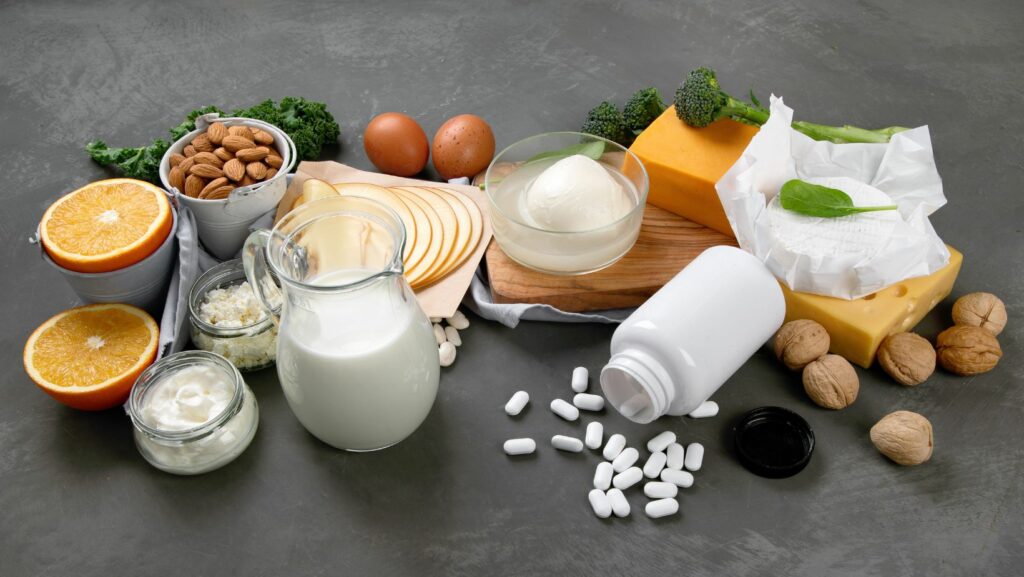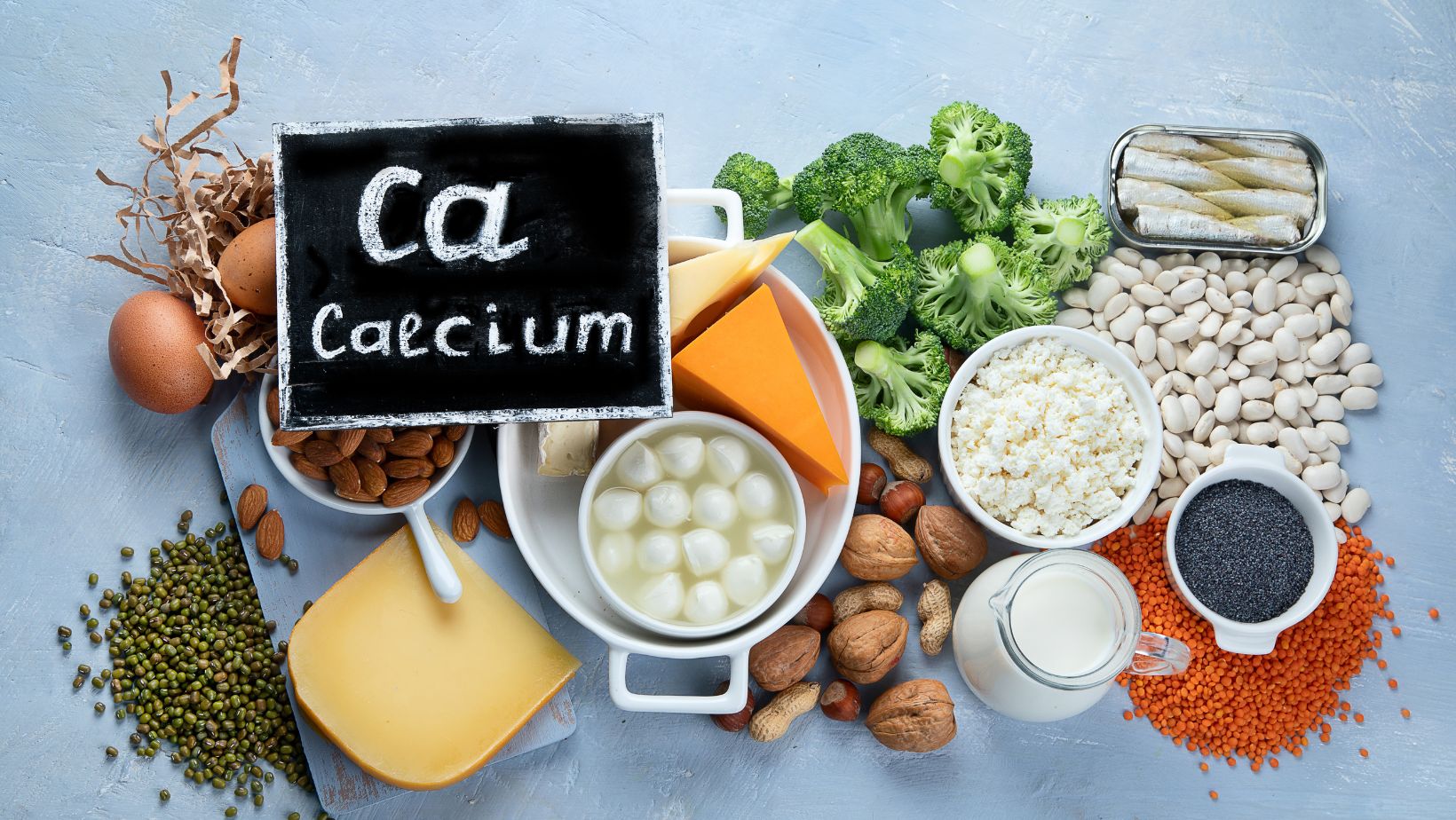Calcium is a mineral that is essential for the development and maintenance of strong bones and teeth. It is also important for the proper functioning of muscles, nerves, and the heart. The body needs calcium to absorb vitamin D, which is essential for bone growth and health. Most of the calcium in the human body is found in the bones and teeth.
A small amount of calcium is needed for other body functions, such as blood clotting, cell division, and hormone secretion. Calcium can also help to prevent certain diseases, such as osteoporosis (a condition in which bones become thin and fragile).
The recommended daily intake of calcium is:
- For adults aged 19-50: 1,000 mg/day.
- For adults over 50: 1,200 mg/day.
- For pregnant or breast-feeding women: 1,000-1,300 mg/day.
Most people do not get enough calcium from their diet and need to take supplements. Foods that are rich in calcium include milk, cheese, yogurt, tofu, leafy green vegetables, fish with edible bones (such as sardines), and certain nuts (such as almonds).
How Much Calcium Do We Need?
The amount of calcium we need every day varies depending on our age and gender. For example, women aged 19-50 need 700 mg per day, while men of the same age only need 600 mg. However, both sexes need 1200 mg from the age of 51 onwards. You can find out how much calcium you need using the NHS Choices calcium calculator.

Although we need calcium for strong bones and teeth, it also plays an important role in other bodily functions. For instance, calcium is essential for blood clotting, muscle contraction and nerve function.
A lack of calcium can lead to health problems such as:
- Osteoporosis.
- Rickets.
- Tooth decay.
- Muscle cramps.
- High blood pressure.
What are The Risks of Calcium Deficiency?
Not getting enough calcium can lead to a variety of health problems. It is essential for strong bones and teeth, and it also helps with muscle contraction, nerve function, and blood clotting. Without enough calcium, you may develop osteoporosis, which is a condition that causes your bones to become weak and brittle. You may also experience muscle cramps, joint pain, and an irregular heartbeat.
How Much Calcium in Ice Cream
The amount of calcium in ice cream varies depending on the recipe, but it is generally low in calcium. One cup of vanilla ice cream, for example, contains approximately 10 mg of calcium, while one cup of chocolate ice cream contains approximately 20 mg of calcium. While these amounts may seem small, they can add up quickly if you consume large amounts of ice cream regularly.
A lack of calcium can lead to a number of health problems, including osteoporosis, hypertension, and kidney stones. It is therefore important to make sure that you are getting enough calcium in your diet. If you are concerned about your intake, speak to a doctor or registered dietitian who can help you plan meals that will meet your needs.
How Can We Get More Calcium in our Diet?
As we all know, calcium is an essential mineral for our bodies. It helps to build and maintain strong bones and teeth, and is also important for muscle contraction, blood clotting and nerve function. However, many people don’t get enough calcium in their diet, which can lead to health problems such as osteoporosis.
There are many ways to get more calcium into your diet. You can eat foods that are rich in calcium, such as dairy products, dark green leafy vegetables, canned fish with bones, and certain types of beans. You can also take calcium supplements. If you are unable to get enough calcium from your diet, your doctor may recommend that you take a calcium supplement.

It’s important to note that too much calcium can also be harmful. If you take more than the recommended amount of calcium (1000-1200 mg per day for adults), you may increase your risk of kidney stones or other health problems. Therefore, it’s important to talk to your doctor before increasing your calcium intake.


